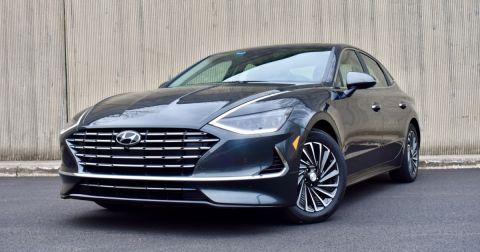Hyundai’s new $1.58B plant in South Korea set to produce 200,000 EVs annually
Hyundai's Ulsan plant, a car manufacturing facility established by the South Korean automaker in 1968, is undergoing a transformative shift towards electric vehicles (EV), to enable the company to produce up to 200,000 EVs annually starting in 2026. The first vehicle to roll out of the South Korea-based Ulsan plant was the Cortina, but of course, it was not the last as the facility produced some of the brand’s most popular passenger vehicles, such as the Accent, Elantra, Sonata, and the Getz. Now, it is getting ready to produce zero-emission vehicles.
Unveiling ambitious plans to transform this historic site into a dynamic EV production hub, Hyundai said that the forthcoming plant would span 548,000 square meters. Its reported annual production capacity of 200,000 EVs points to a pivotal shift in the plant's trajectory.
Construction of the EV-dedicated facility is expected to be finalized by 2025, while mass production of EVs is slated to kick off in early 2026. Notably, the all-electric Genesis SUV will mark the inaugural EV to roll out of the upcoming state-of-the-art facility, symbolizing a momentous milestone in the plant's progress.
Some reports also suggest that the flagship Genesis GV90 SUV will lead the electric lineup at the EV plant, utilizing Hyundai Motor Group’s leading-edge Integrated Modular Architecture (IMA). Comprising the eM and eS systems, this innovative platform will cater to passenger vehicles, such as the GV90 and purpose-built vehicles (PBVs) for various applications, including delivery services and car-hailing.
Envisaging the new EV plant as the cornerstone of their electric mobility endeavors for the next fifty years, Hyundai Motor Group’s Executive Chair Euisun Chung said, “The new EV-dedicated plant in Ulsan marks the beginning of an electrifying future for the next 50 years. I am honored to unveil our vision for a century-long legacy here.”
Highlighting Ulsan’s role as a hub of innovation in the electrification era, Chung added that he believed Ulsan would lead innovation as a forward-thinking mobility city, starting with the inauguration of the dedicated EV plant.
Looking ahead, the South Korean brand’s ambitious plans outline the launch of around a dozen new EVs by the end of 2030, including battery-powered sedans, SUVs, and a light commercial vehicle (LCVs). Similarly, the group’s luxury brand Genesis aims to launch at least two passenger electric cars and four SUVs by 2027. Although the specific electric models to be produced at the Ulsan plant remain undisclosed, its role in shaping the brand's electrification roadmap will be unquestionably pivotal.
